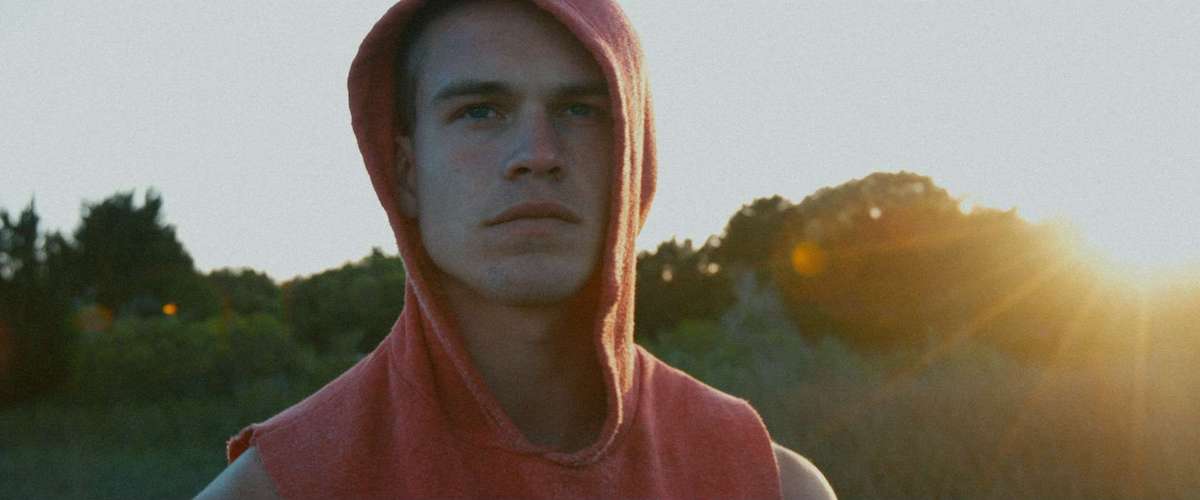Film Review: ‘Moss’
By Dennis Harvey
LOS ANGELES (Variety.com) – Hazily atmospheric “Moss” chronicles the 18th birthday of its titular rural youth, to whom the 36 hours or so depicted end up seeming quite eventful — though viewers may find them less so. Daniel Peddle’s indie drama has a handsome hero and attractive photography of the coastal North Carolina locations, but isn’t quite arresting enough in mood or style to sustain a feature so slight in story terms. Still, this is no failure, but a nice slice-of-life miniature that falls a bit short, suggesting its writer-director (whose prior efforts were mostly documentaries) is just another film or two away from more expertly combining a meditative tenor with narrative content.
Pleasure Island, just off North Carolina’s southernmost coast, is home to teenage only child (Mitchell Slaggert) and his father Ray (Billy Ray Suggs). The latter makes a living crafting sculptures from driftwood, a profession his son scoffs at — though as Moss’ stoner bestie Blaze (Dorian Cobb) says, “It’s better than makin’ meth.” Our protagonist is motherless, his mom having died during childbirth, an issue that’s the source of some tension between her surviving husband and son. When dad orders the birthday boy to deliver some meds to grandma rather than laze around on his “special day,” harsh words are said, and Moss stomps off.
En route to his grandmother’s, he first stops to blaze up at Blaze’s raft-cum-houseboat on the river, complaining that he’s now an adult virgin. That problem is all too conveniently addressed when he next meets passing-through stranger Mary (Christine Marzano), who’s camping on the beach on her way to visit a brother in New York, and looks like a young Lauren Hutton. She’s quite willing to hang out and play the role of a more laid-back, slightly hippiefied Mrs. Robinson, inviting Moss to do shrooms with her as another form of initiation. As they spend the next few hours tripping out, we also get glimpses of how Ray and Blaze are separately spending their day.
Despite the odd flashback, dream sequence, slo-mo nature appreciation, and awkwardly poetical voiceover narration, there’s not a lot going on here. When something dramatic finally does happen (there are consequences to Moss forgetting all about Grandma), it seems too much — and as if Peddle realizes that himself, the film quickly backs off from dealing with the crisis in any meaningful way.
Chiseled Slaggert, a model who appeared in the mainstream horror “Wish Upon” (shot later but released first) after being “discovered” by Peddle, holds the screen well enough but doesn’t yet have the acting chops to supply much psychological nuance or depth on his own. Supporting turns are adequate if a tad uneven.
In addition to its scenic virtues, there’s a pleasant sense of life’s innate harmoniousness here: The film’s larger arc, such as it is, is one that sees Moss and his dad move from mutual anger to forgiveness without ever actually needing to talk it out. Their conflict resolves itself simply by virtue of both having enough hours apart to cool down.
Such grace notes balm “Moss” when it waxes a wee bit pretentious (especially in that voiceover), or when it seems in need of stronger collaborative elements — certainly more so than Ian Hatton’s noodling-on-the-porch electric guitar score — to lend an amorphous tale compensating aesthetic definition. Juri Beythien’s widescreen cinematography does reach some lyrical heights, however, and one suspects soon Peddle will do the same with an entire movie no less languidly pretty but more substantial than he’s managed this time.

